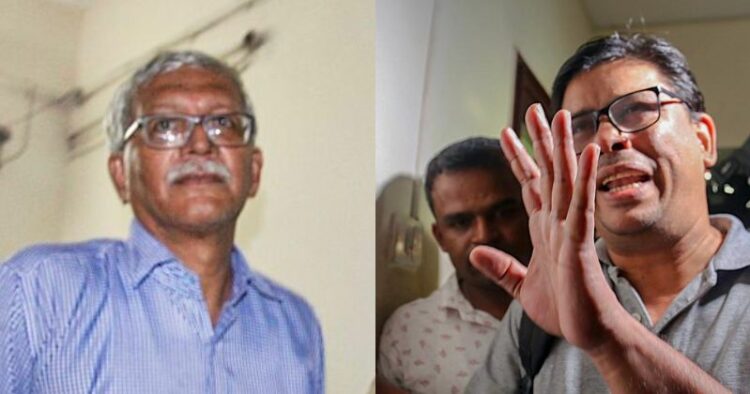On July 28, the Supreme Court of India granted bail to two accused in the Bhima Koregaon–Elgar Parishad case – Vernon Gonsalves and Arun Ferreira. The two accused were booked under various provisions of the Unlawful Activities (Prevention) Act (UAPA) of 1967 and have been lodged in jail since August 2018. The two accused allegedly have links with the terror outfit – Communist Party of India (Maoist).
The court’s Division Bench, comprising Justices Aniruddha Bose and Sudhanshu Dhulia, granted bail to the two accused on the grounds that they have been lodged in prison for about five years. The court said that while the allegations against the accused are serious, it cannot be the sole ground to deny bail and materials against them could not justify continued detention.
The Supreme Court set aside the Bombay High Court’s verdict which had refused bail to the two accused. On December 1, 2021, the Bombay High Court’s Division Bench, comprising Justices SS Shinde and NJ Jamadar, refused bail to the two accused – Vernon Gonsalves and Arun Ferreira – and the other accused.
The Supreme Court granted bail to the two accused on the condition that they would not leave the State of Maharashtra till the trial is over. Furthermore, the court directed the two accused to surrender their passports and information the NIA about their address. The accused must provide NIA with their mobile phone numbers as well and that they can only have one mobile connection while on bail. The court has also directed the accused to report to the investigating officer once a week.
The accused’s counsels argued that the material on record based on which the National Investigation Agency (NIA) has detained the two accused is insufficient. The counsels argued that the alleged documents which form the basis of charges against the accused were never recovered from the accused, or connected to them. The counsels further placed reliance on the Bombay High Court’s decision to grant bail to Anil Teltumbde, another accused in the Bhima Koregaon violence.
However, the NIA’s counsel argued that the material on record was ‘ample’ and ‘sufficient’ to show a prima facie case against the accused in consonance with the provisions of the UAPA. Furthermore, the counsel said several documents and witnesses corroborate the NIA’s version of events. The counsel further differentiated between the two accused and Anil Teltumbde’s case, citing a difference in the material available on record.
The case concerns the Elgar Parishad conference which was held in Shaniwar Wada, Pune, on December 31, 2017, where inflammatory speeches were made by the members of the frontal organisation of the banned CPI (Maoist) which ultimately led to the violence in Bhima Koregaon on the next day.
The NIA alleged that Vernon Gonsalves, Arun Ferreira and 14 others were responsible for the violence. The NIA claimed that the accused conspired and planned the violence, charging them under various provisions of the Indian Penal Code (IPC) and the UAPA, based on the documents recovered from their electronic devices.
On August 28, 2018, Vernon Gonsalves and Arun Ferreira were arrested. In 2019, the Bombay High Court refused bail to the accused, noting that there was a prima facie case to show that the accused were active members of the banned terror outfit, CPI (Maoist), and were tasked with recruiting members for the organisation.
Notably, co-accused Gautam Navlakha also moved the Bombay High Court challenging the Special NIA Court’s verdict refusing bail to him, noting that there are reasonable grounds to believe that the allegations against him are prima facie true. The trial court observed that ‘Gautam Navlakha was a member of the proscribed Communist Party of India (Maoist).’
“Considering the totality of material, Navlakha’s role cannot be segregated from the role of the co-accused in the case and there are reasonable grounds for believing that the accusation against Navlakha are prima facie true,” the trial court said. The trial court in its order also observed that “prima facie it shows that there is a nexus between the accused Navlakha and Syed Ghulam Nabi Fai, an agent of Pakistan Inter-Service Intelligence (ISI).
The case against Gautam Navlakha has been registered u/s 153(A), 505(1)(B), 117, 120(B), 121, 121(A), 124(A) & 34 of the Indian Penal Code (IPC) and Sections 13, 16, 17, 18, 18(A), 18(B), 20, 38, 39 & 40 of the Unlawful Activities (Prevention) Act (UAPA).




















Comments